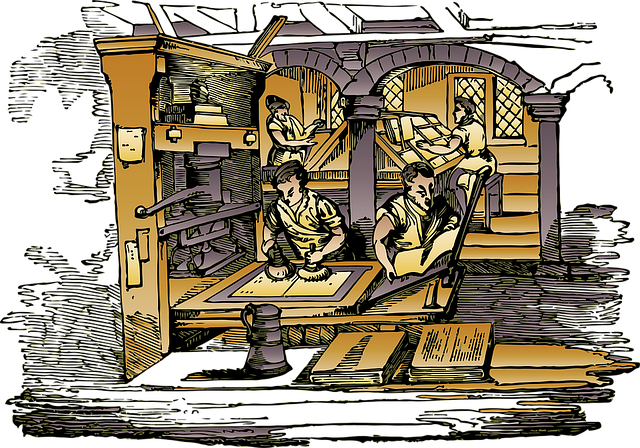
When I finished writing Maybe Next Year, I had a decision to make: What would be the best way to bring this book to market?
Generally speaking, there are three options for publishing a book: traditional or mainstream publishers (for example, Simon and Schuster, Harper Collins, and Penguin/Random House), independent publishers, and self-publishing.
As a novice novelist, pursuing a contract with a traditional publisher would be a long shot. Although I have three self-published non-fiction books to my credit that have done moderately well, I have no professional writing experience, no formal writing education, and no platform (audience base) for my fiction to speak of. Plus, my book doesn’t fit comfortably in any marketing category. It’s not really a romance novel nor a Young Adult novel. The best way to describe it is simply ‘LGBTQ Fiction,’ which is a broad category.
Traditional Publishers
The biggest, practically insurmountable hurdle to getting my book published by a traditional publisher is the overwhelmingly long odds of even getting in the door. Nobody gets to a traditional publisher except through an agent. Literary agents are the talent scouts or gatekeepers for the big publishers. So, step one is querying agents until you find one who believes your manuscript will be of interest to someone at one of the traditional publishers. Based on what I’ve observed in my writing community network on Twitter, it’s not uncommon for authors to query 50 to 100 agents and receive no interest. Even in cases where an agent feels a manuscript has promise and agrees to represent you, there’s no guarantee that she will be able to get you a contract with a publisher.
This process, as you can imagine, takes a lot of time and perseverance over many months, and requires a high level of resilience to endure dozens of rejections. If you are one of the lucky ones to receive a contract from a traditional publisher, it will usually take one to two years before your book finally reaches bookshelves.
First-time authors typically receive a $5,000 to $10,000 advance and a royalty rate of 10-15% for hardcover sales and 5-7.5% for paperback sales. You won’t actually receive any royalties until they exceed the advance you were paid, so many authors don’t make money beyond the advance. Oh, and your literary agent receives 15% of your income. So you won’t make much money per book sold.
Pros of going with a traditional publisher: The panache of being published by an established, big-name publisher, plus the validation that if a publisher offers you a contract, it’s because they believe there are some people out there who will buy your book. You also get the benefit of their editors, cover designers, and distribution channels.
Cons of going with a traditional publisher: The odds that you’ll actually get a contract are minuscule. It will take a long time for your book to get to market. You’ll make very little money per book. You’ll still do almost all of the marketing and audience-building work yourself. Publishers have small marketing budgets these days.
Independent Publishers
Independent publishers offer a couple of advantages over traditional publishers. They accept submissions directly from authors, so you avoid the “middleman” (or “middlewoman”). The royalties will be somewhat higher, although many indie publishers do not offer advances (especially for first-time authors), and those who do offer $2,000 to $5,000. Time-to-market for indie publishers is typically six to twelve months.
I submitted Maybe Next Year to two LGBTQ publishers who are among the leading publishers in this genre. One rejected it promptly, saying it didn’t fit into the types of books they are looking to publish, and the other spent 16 weeks evaluating it before ultimately rejecting it. Most publishers do not want authors to submit works simultaneously to multiple publishers (which I understand), but that prolongs the process of finding a publisher.
Larger indie publishers have a catalog of dozens or even hundreds of titles, and they sell from their websites as well as through other channels such as Amazon. Presumably, they have customer bases to which they can cross-sell similar books from other LGBTQ authors. Still, most marketing work falls to the author.
Pros of going with an indie publisher: No agent required. Higher royalty percentage than traditional publishers, but smaller (or no) advance. Most of them list specific information about what kinds of books they’re looking for and how they wish to receive submissions. You get the benefit of their editors, cover designers, distribution channels, and possibly access to readers of similar authors.
Cons of going with an indie publisher: Many of them are tiny start-ups. Many of them in the LGBTQ space are mostly or exclusively by and for women (so they’re really L, not LGBTQ+). The submission process is still time-consuming. You’ll do most of the marketing yourself.
Self-Publishing
Then there’s self-publishing. Self-publishing no longer holds the stigma it once did. Today, many successful authors self-publish.
Amazon has completely changed the publishing game, for better or for worse. Thanks to their print-on-demand capabilities, each book is printed when it’s purchased and shipped within a couple of days. Self-published authors no longer have to place minimum orders of hundreds or even thousands of books, then worry about where they will store them – let alone deal with order fulfillment and distribution.

Before ebooks, audiobooks, and print-on-demand paperbacks, book sales happened almost entirely in brick-and-mortar bookstores. People discovered new books by browsing the shelves and displays. Book distribution was available only to the major publishers and perhaps larger independents, but not self-publishers. Now, there are distribution channels for self-publishing, although it’s still difficult to get into physical bookstores and libraries.
Pros of self-publishing: The biggest benefit is that no one else decides whether your book will be published. You earn the highest amount of money per book sold since there’s no company or agent to split it with. You have the shortest time to market. You have full control over the editorial decisions and the cover art (for better or for worse). You own the rights, so when Hollywood calls to option your book for a movie or TV series, you all get the money!
Cons of self-publishing: You do all the work, or pay to have it done. You find an editor and pay them. You find a cover designer and pay them. Of course, you can do either of these tasks yourself, but unless you have a lot of skill or are willing to live with amateurish results, you should probably pay someone else. You do all the formatting and uploading to whichever online publishers you choose to distribute through, or you pay a company that offers these services.
The bottom line for me is this:
I’m realistic enough to accept that my books are unlikely to be of interest to traditional publishers, so I’m not willing to endure the long, drawn-out, and almost certainly unsuccessful process of querying agents.
I’m 65. I don’t want to wait years to see my first novel become a reality. I’m kind of impatient that way.
I’ll have to do almost all of the marketing and audience development myself, regardless of which type of publishing I choose, so I might as well choose the option that will earn me the most money per book and which allows me the most creative control.

Read Cruise Virgins for Free!
Cruise Virgins is a short story about two young men experiencing their first gay cruise. You'll meet some of the characters in my new novel, If I Seem Quiet.... It's a perfect intro to that story.
I'll also send occasional emails that will keep you informed about my upcoming books and offer them to you at a discount. I'll share background information about the stories and the writing process. From time to time, I may solicit your input which will help make the books even better!
If at any time you'd rather opt out, you can unsubscribe with one click. And of course, I would never share your info with anyone else.
© 2022 Dave Hughes. All rights reserved.
Sent to newsletter subscribers on May 8, 2022.
Photo credits:
Bookstore: S. Hermann & F. Richter
Printing press: Janet Gooch